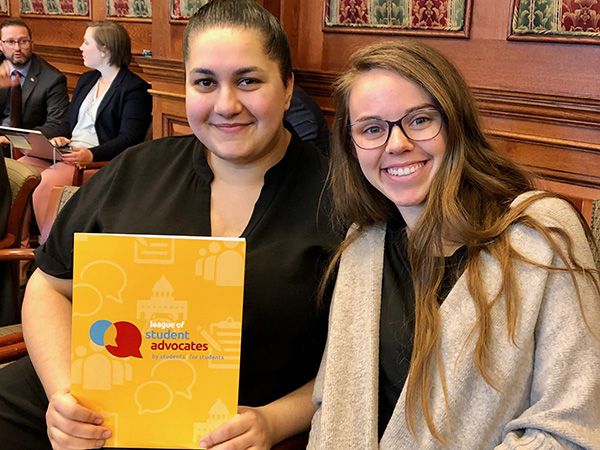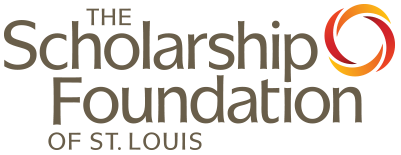




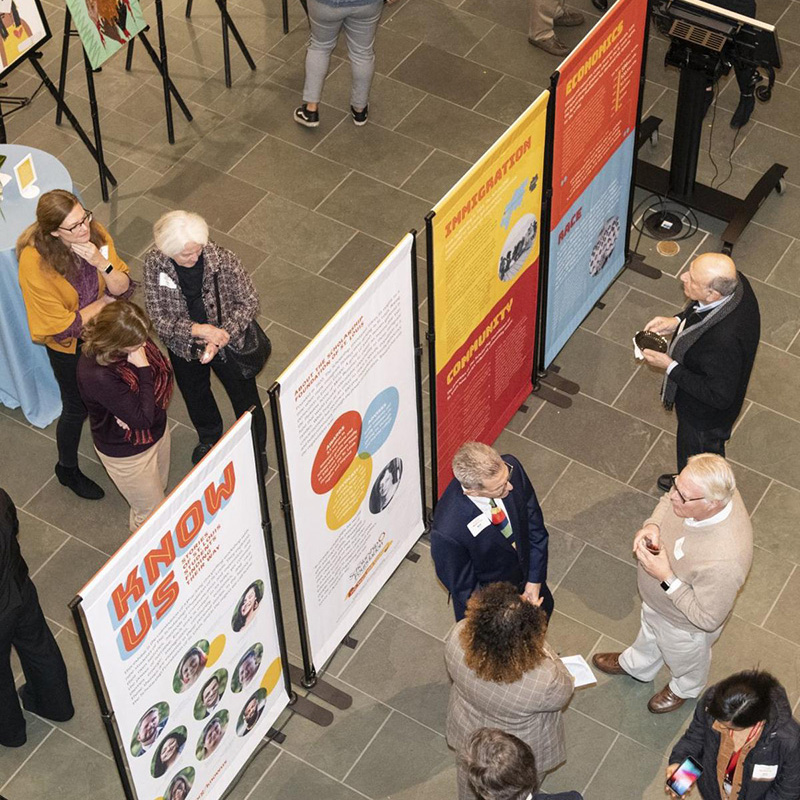
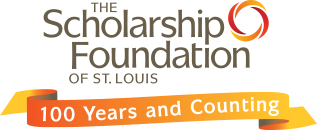
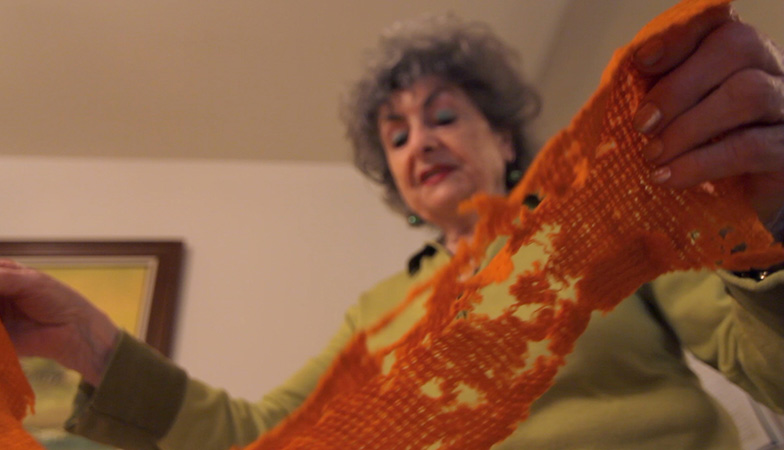
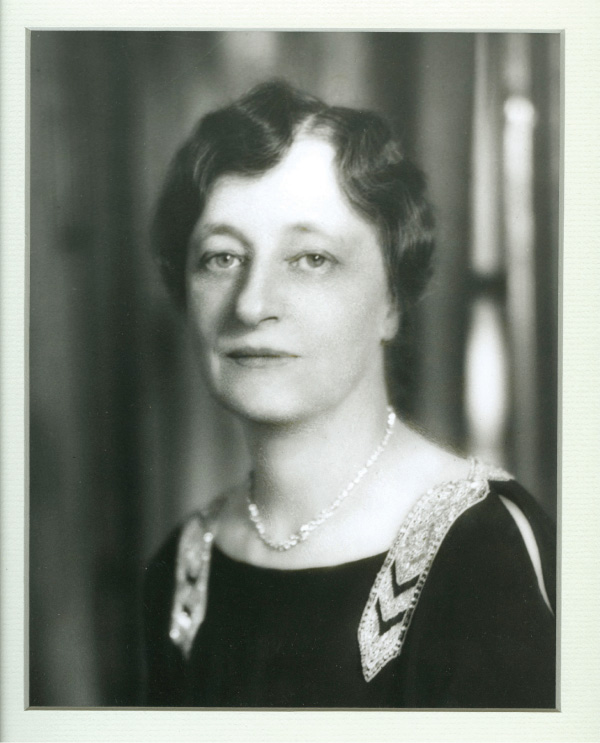
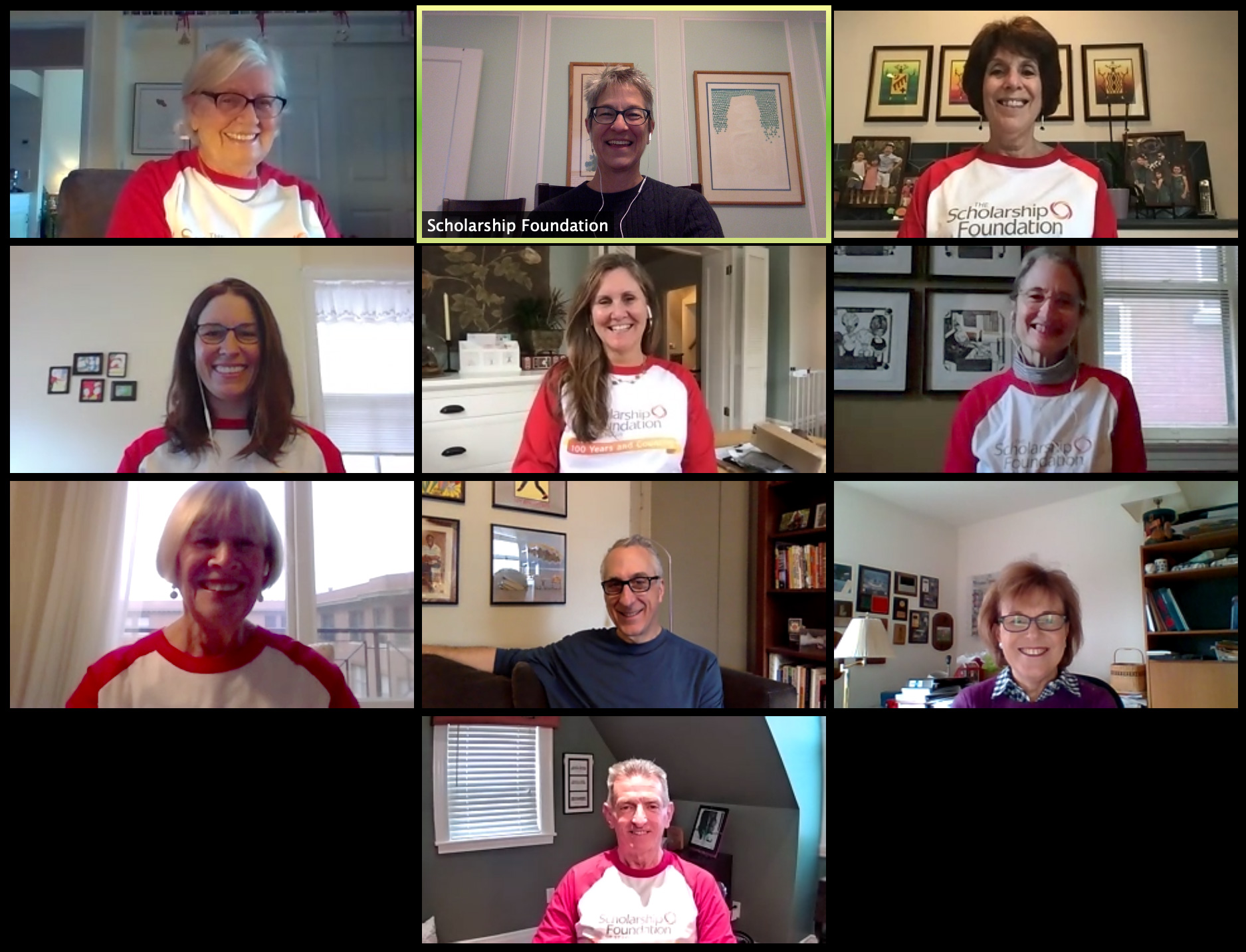
Betsy Douglass, Chair
Martha Aronson
Buff Buffkin
Debra Kennard
Karin McElwain-West
Tom Ruwitch
Faith Sandler
Bente Seitz
Audrey Shanfeld
Barb Touchette
Jamie Wilger
Martha Aronson, Co-Chair
Bente Seitz, Co-Chair
James Boldt
Jane Eiseman*
Carol Evers
Mimi Fargo
Prue Gershman
Linda Goldstein
Lynne Kipnis
Louise Lonsbury
Brenda Melson
Julia Muller
Rhea Oelbaum
Estie Pruett
Dana Romeis
Earl Shreckengast
Jamie Wilger, Staff Liaison
Audrey Shanfeld, Co-Chair
Barb Touchette, Co-Chair
Richard Atkins
Pat Cox
Kathy Day
Karin McElwain-West, Staff Liaison
Judith Meyer
Minnie Phillips
Susan Rava
Debra Kennard, Chair
Karina Arango
Stacy Massey
Faith Sandler, Staff Liaison
Maria Vergara
hands of students*
resources by function
Programs
91.2%
including program
services, student loans,
and grants awarded
Fundraising
6.1%
General and
administrative
$2.7%

expenditures
Loans
$2,262,887
Grants
$2,357,176
Program
services
$2,790,032
of support
 Public support
Public support
 Student loan repayments
Student loan repayments
 Interest and investment
Interest and investment
Special Thanks to Our Donors
For the last one hundred years and counting, Scholarship Foundation donors have made it possible for students to achieve their dreams and strengthen democracy through education. The Foundation gratefully thanks the following individuals, charitable foundations, and corporations for their financial contributions. As it begins its second century of student support, the Foundation is pleased to be joined by such a strong community of partners.
Such contributions include gifts and pledges made to the Foundation’s annual campaign, gifts to support student grant programs, bequests and planned gifts, major gifts to the Designated Scholar Loan (DSL) Program, gifts given to special projects, and tribute gifts. More information is available by contacting External Relations Director Karin McElwain-West at 314-725-7990 or karin@sfstl.org
Donors wishing to make annual contributions online can click here. Contributions made by check should be payable to “The Scholarship Foundation” and mailed to 6825 Clayton Avenue, Suite 100, St. Louis, MO 63139. Please write “annual gift” in the check memo.
*deceased
Legacy ($100,000+)
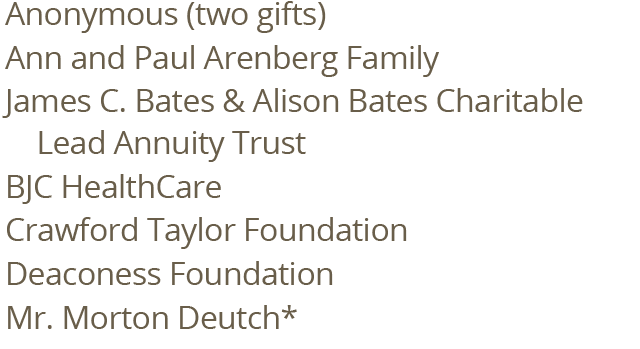
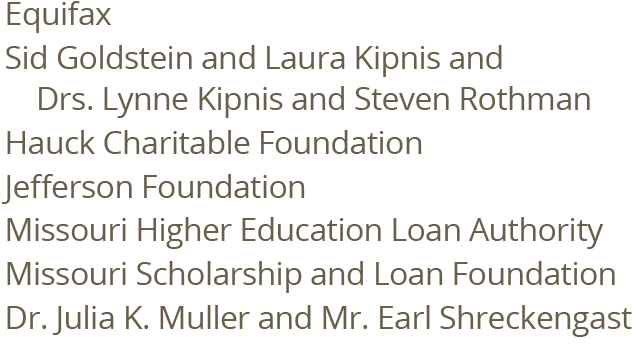

Special ($30,000+)
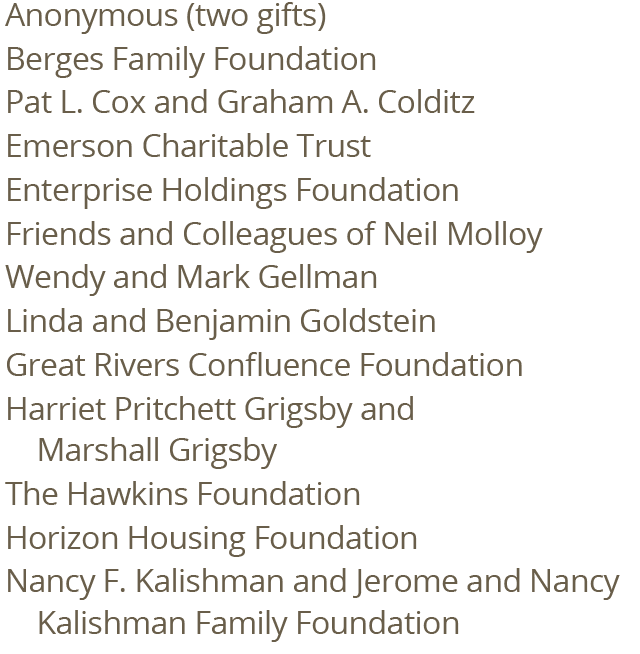
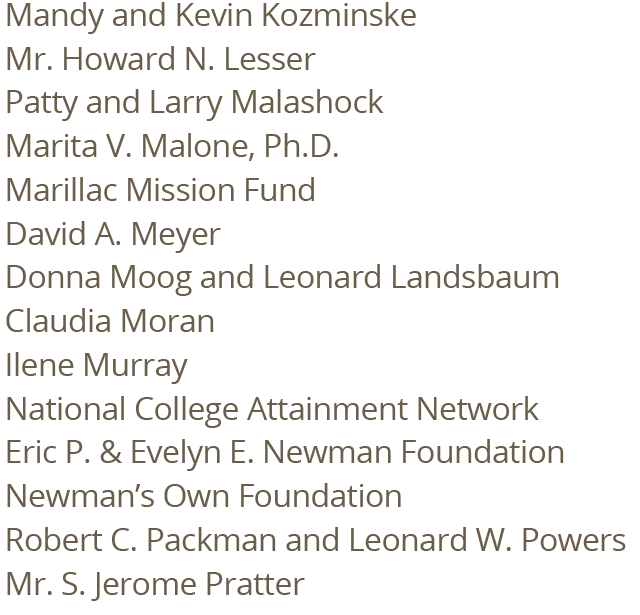
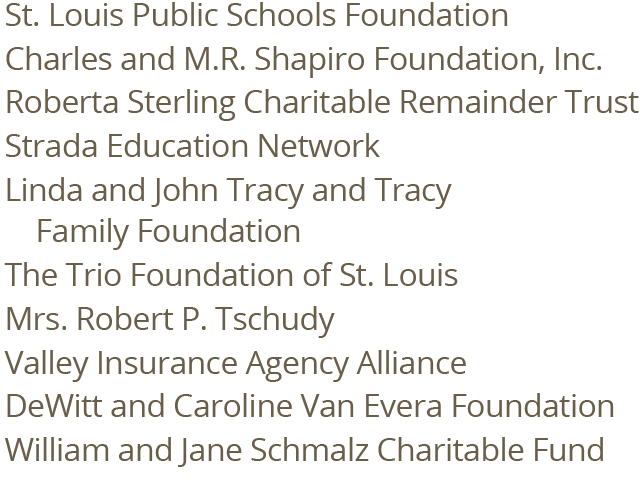
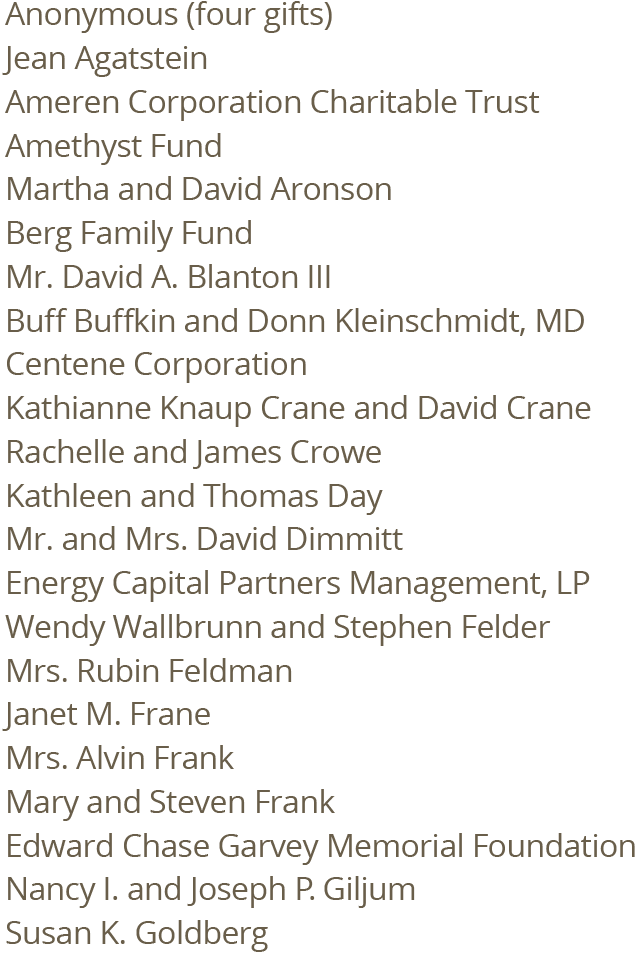
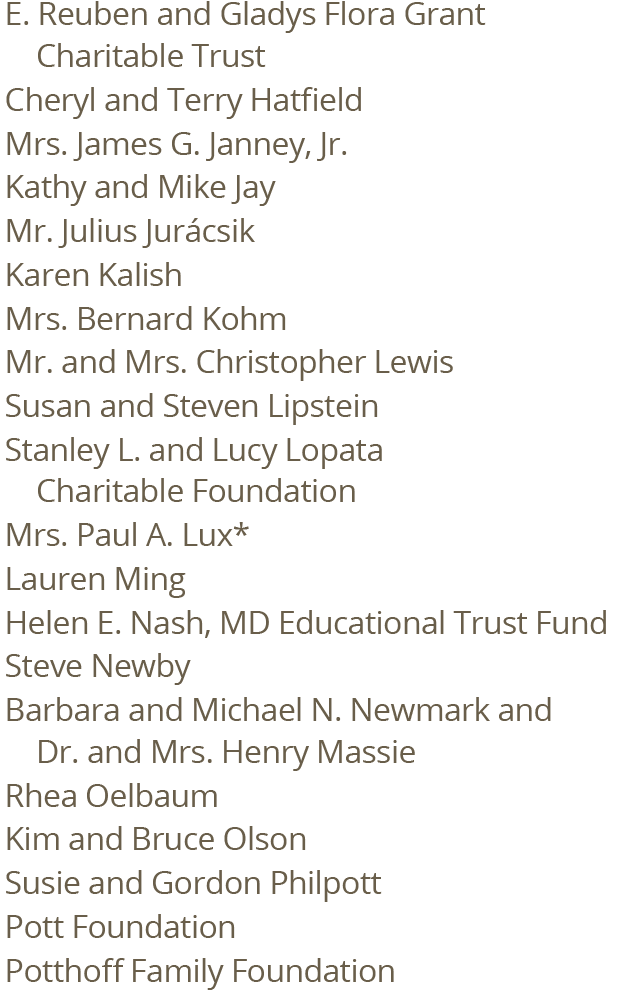
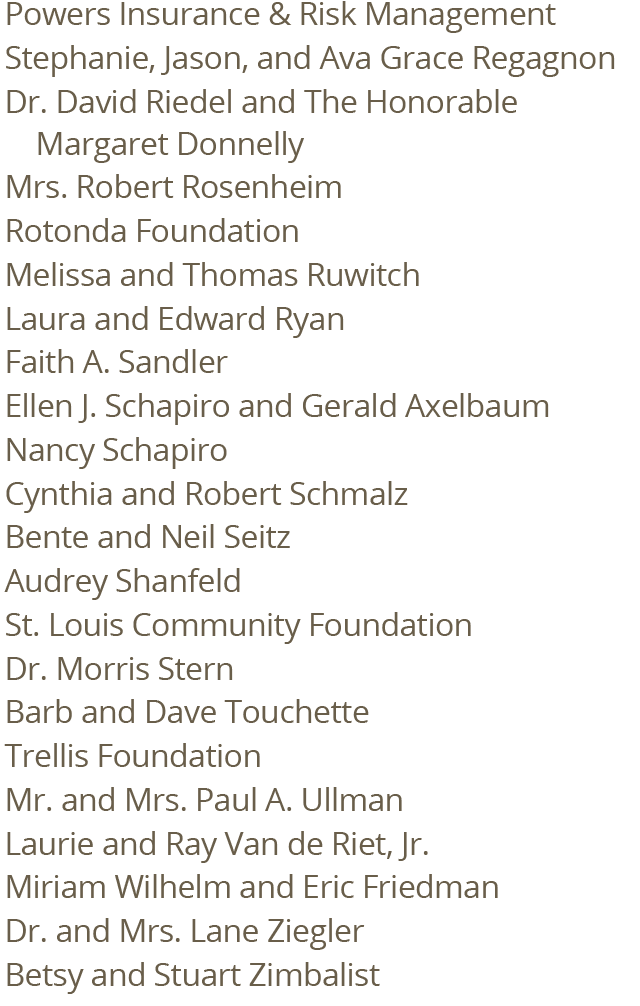
Dean ($5,000+)
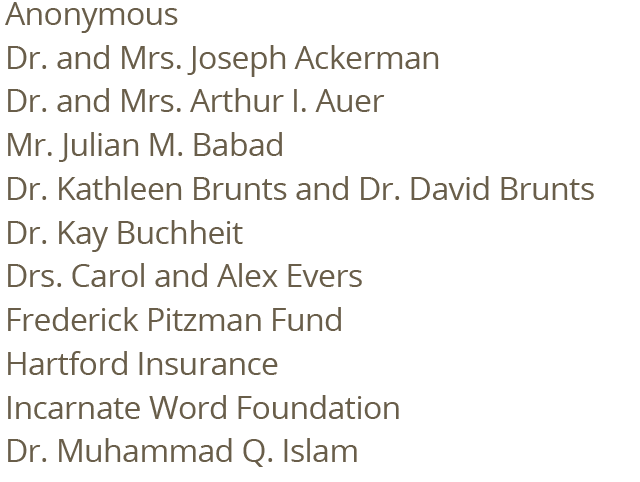
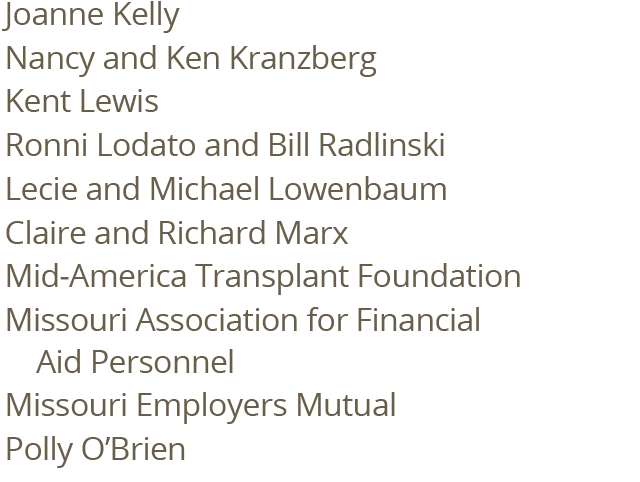
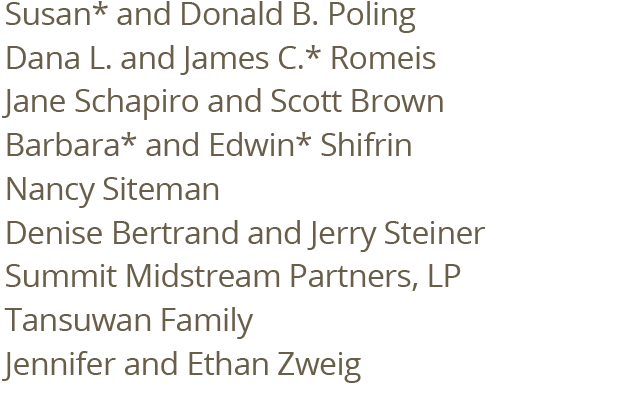
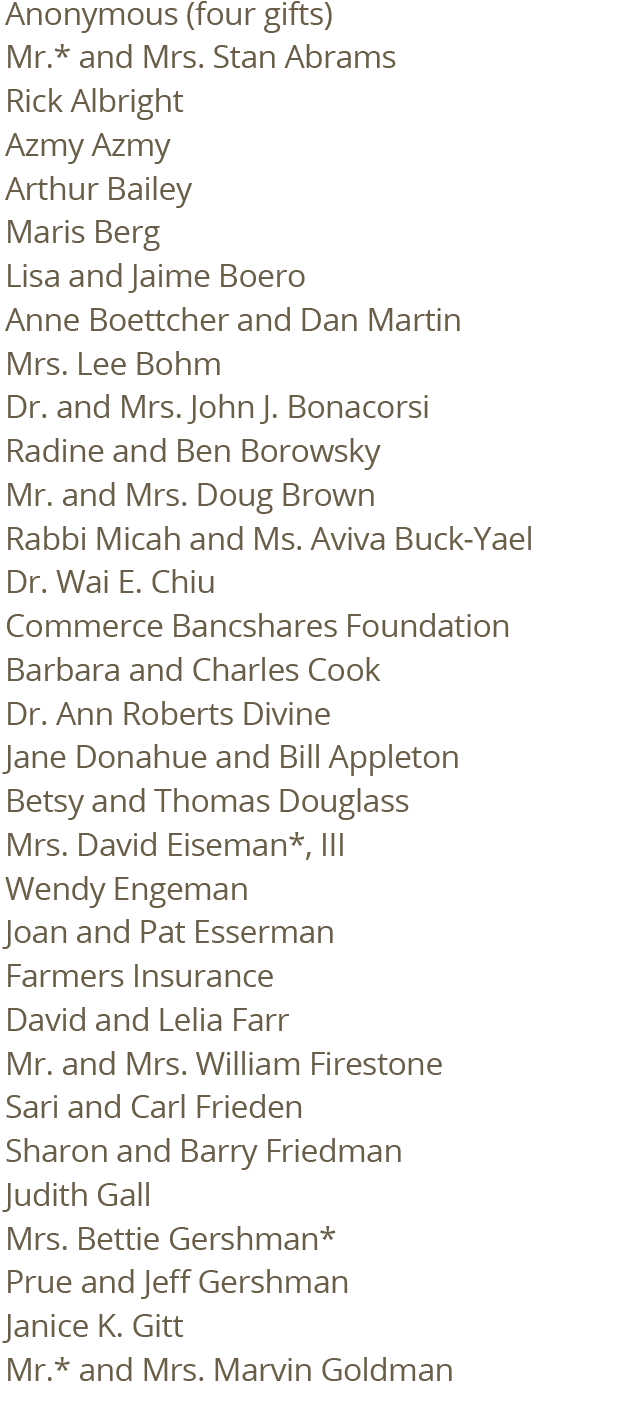
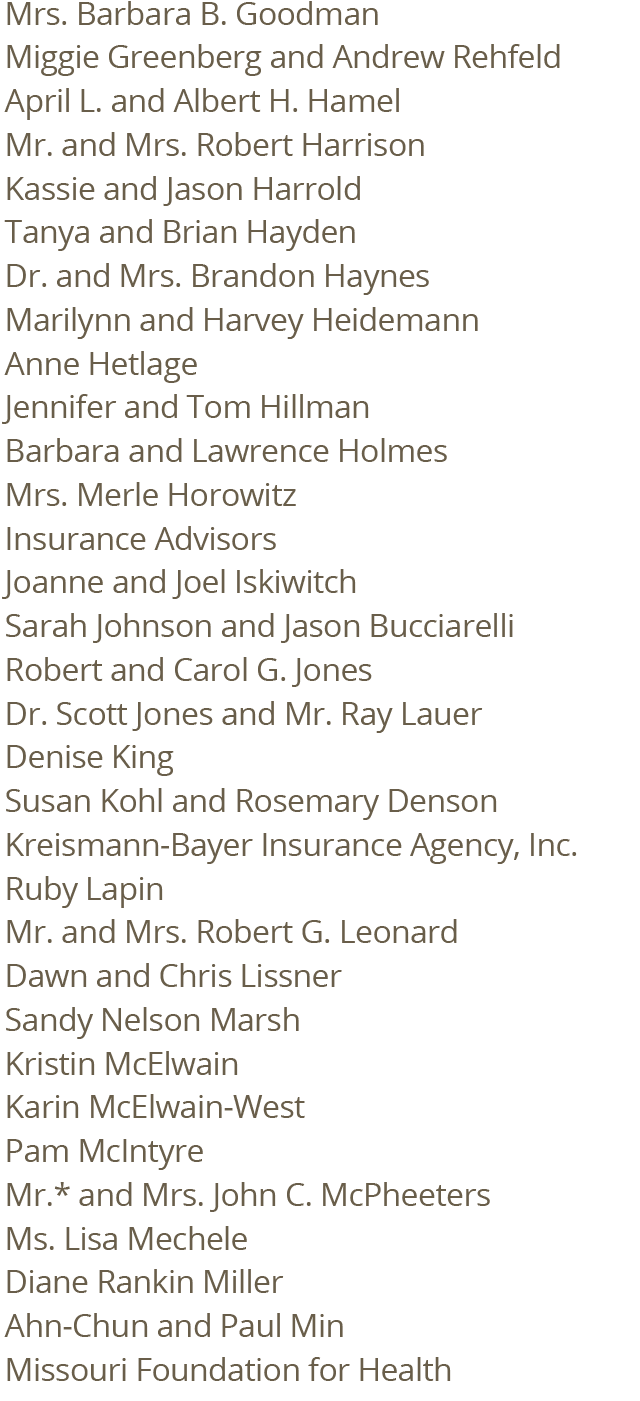
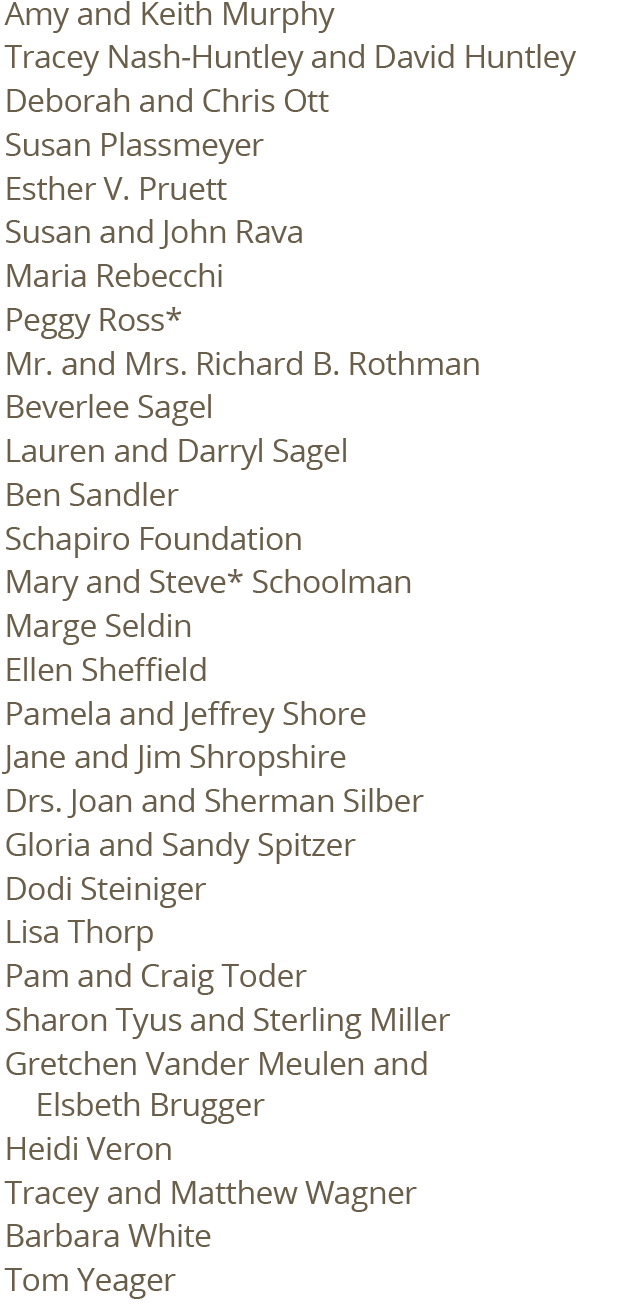


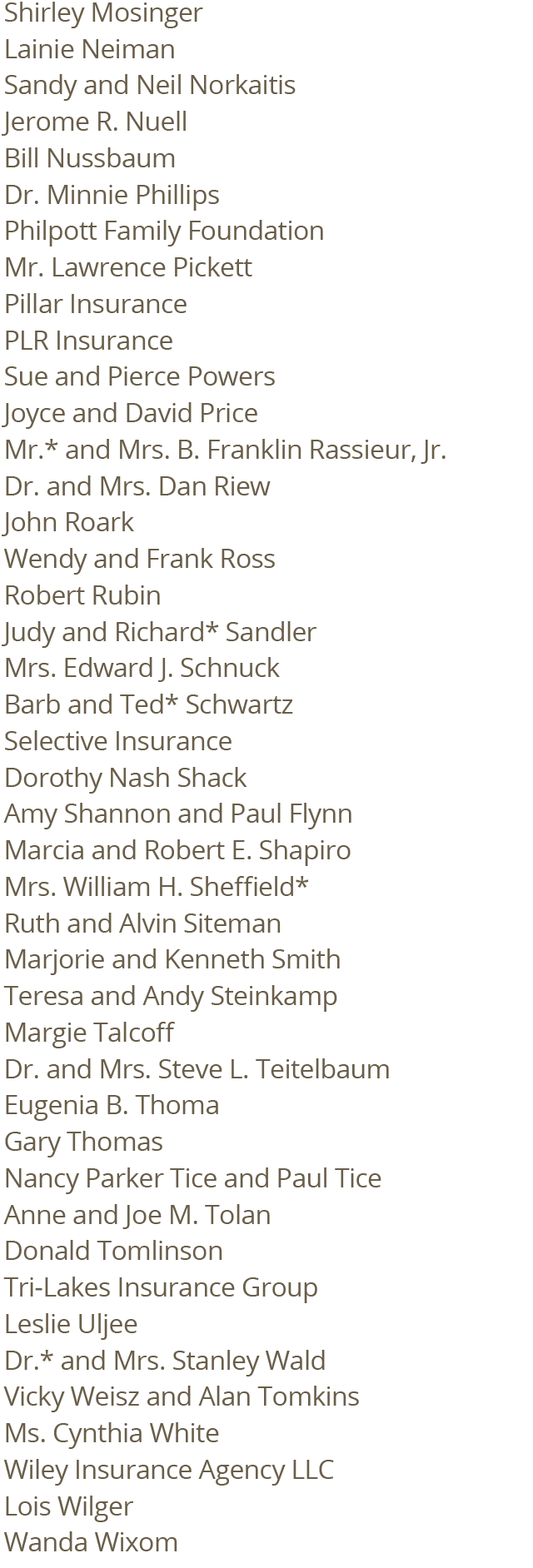
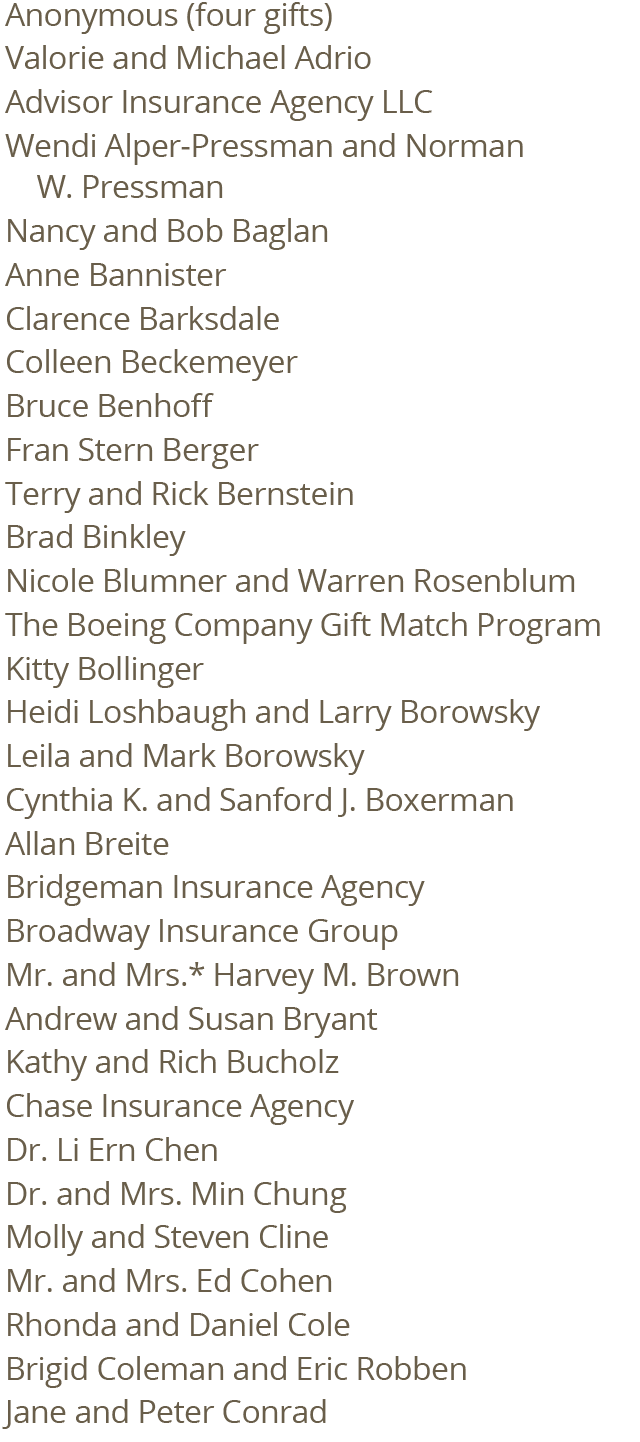
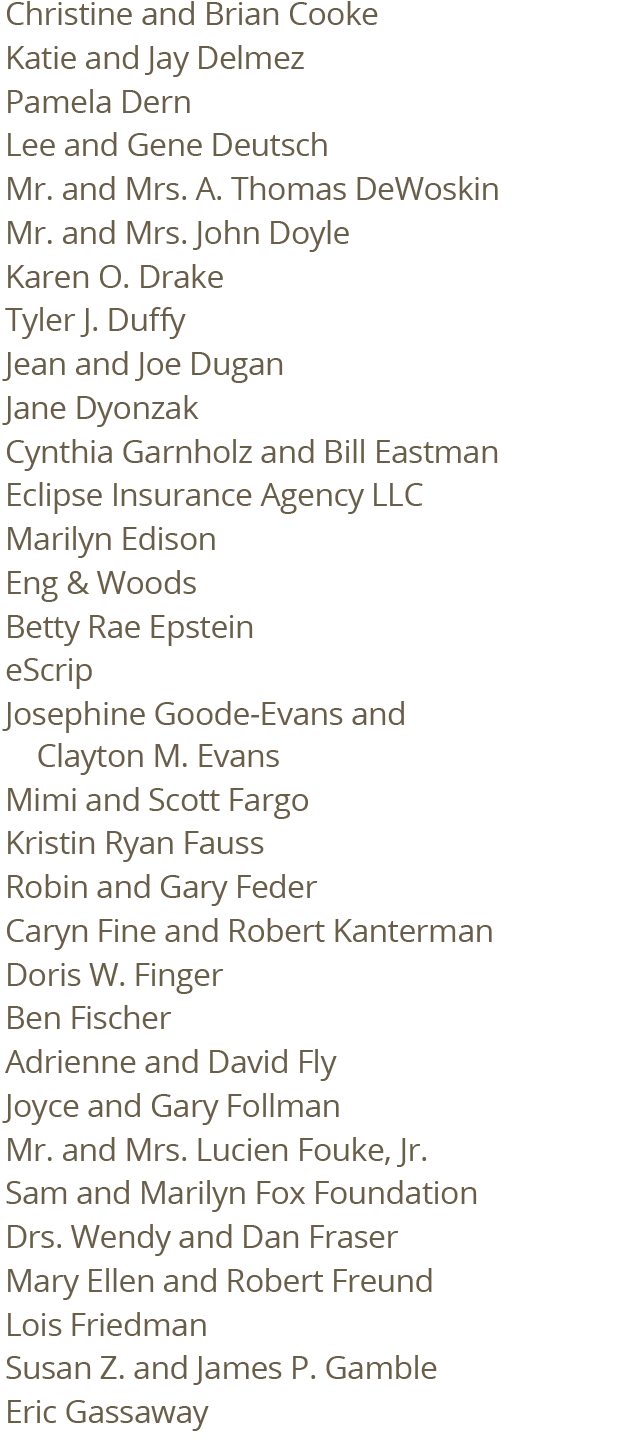
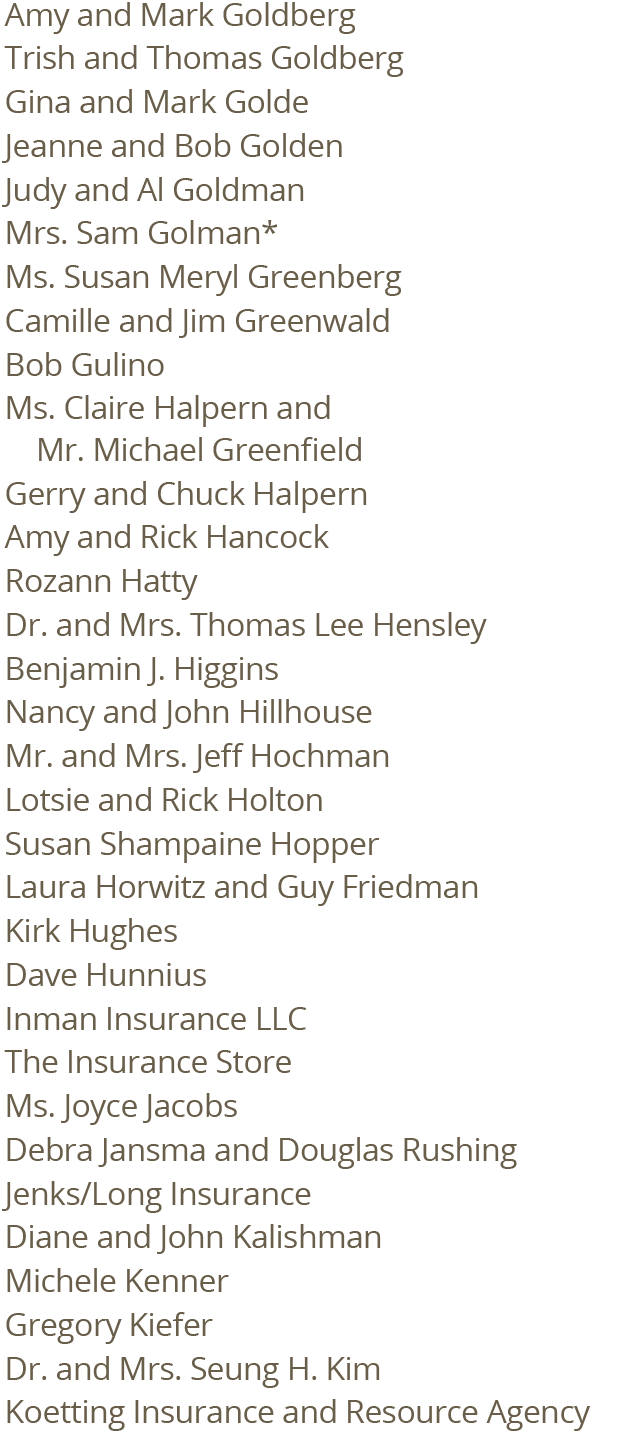
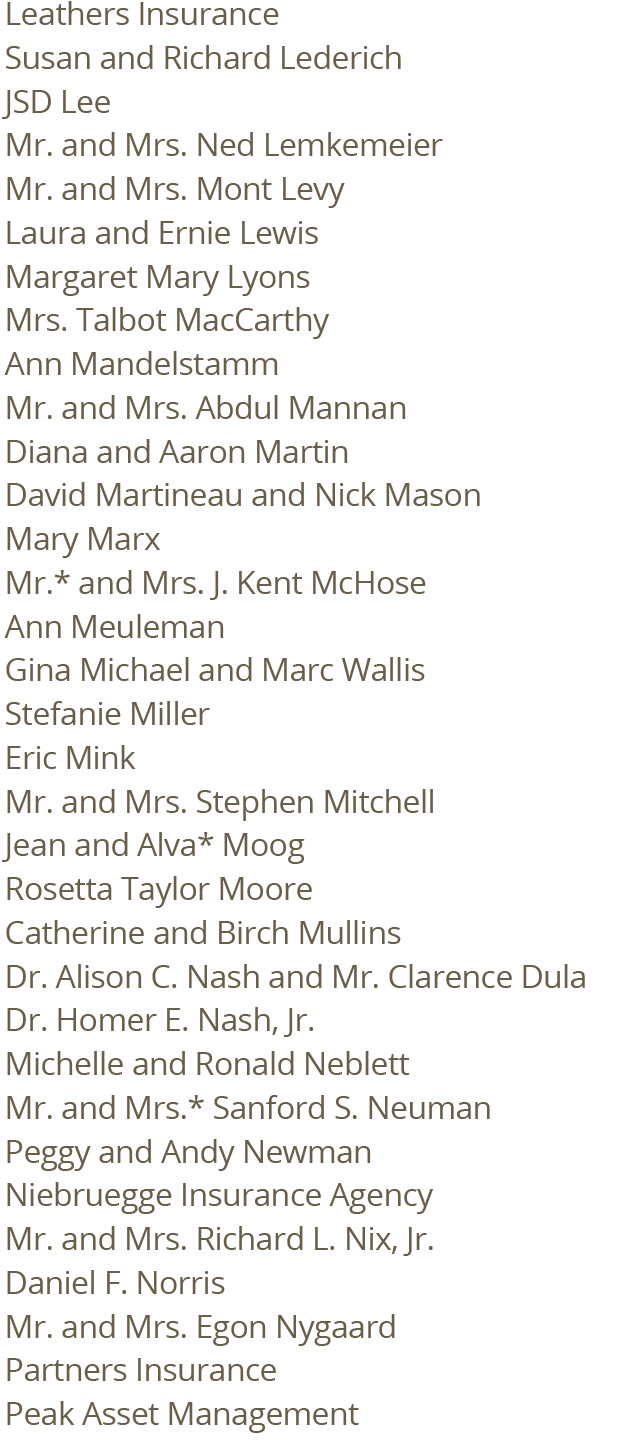
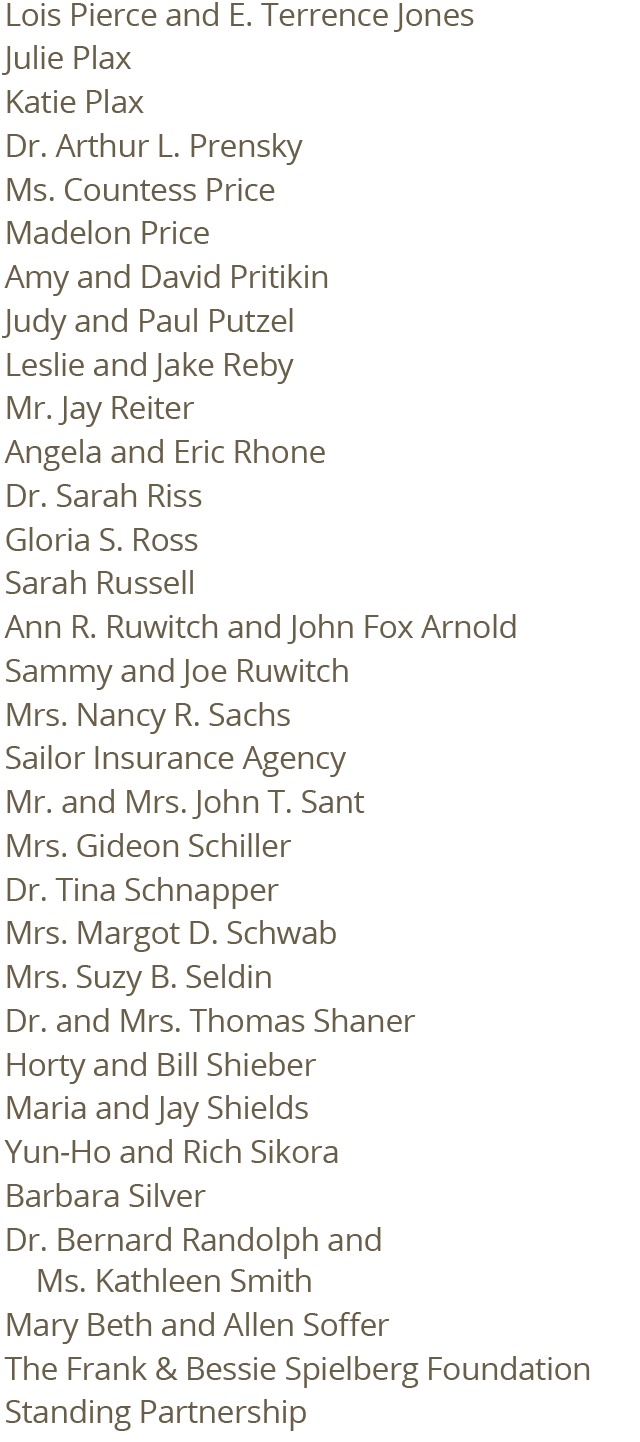
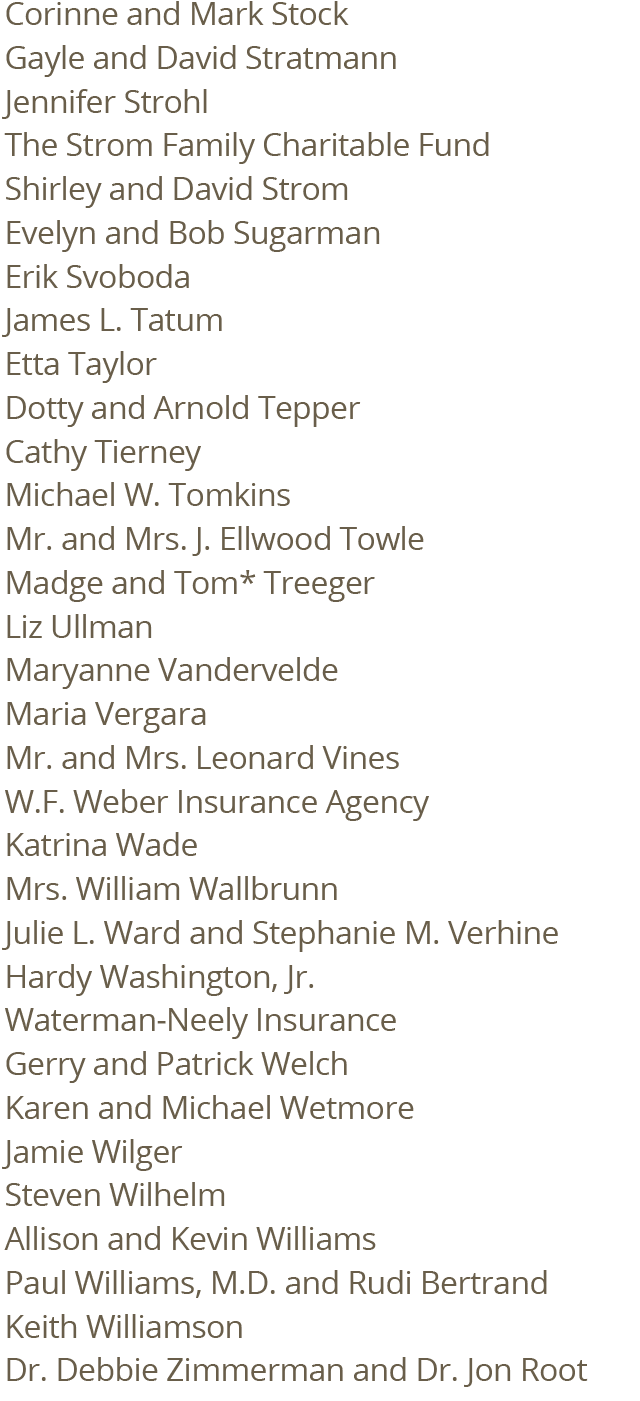





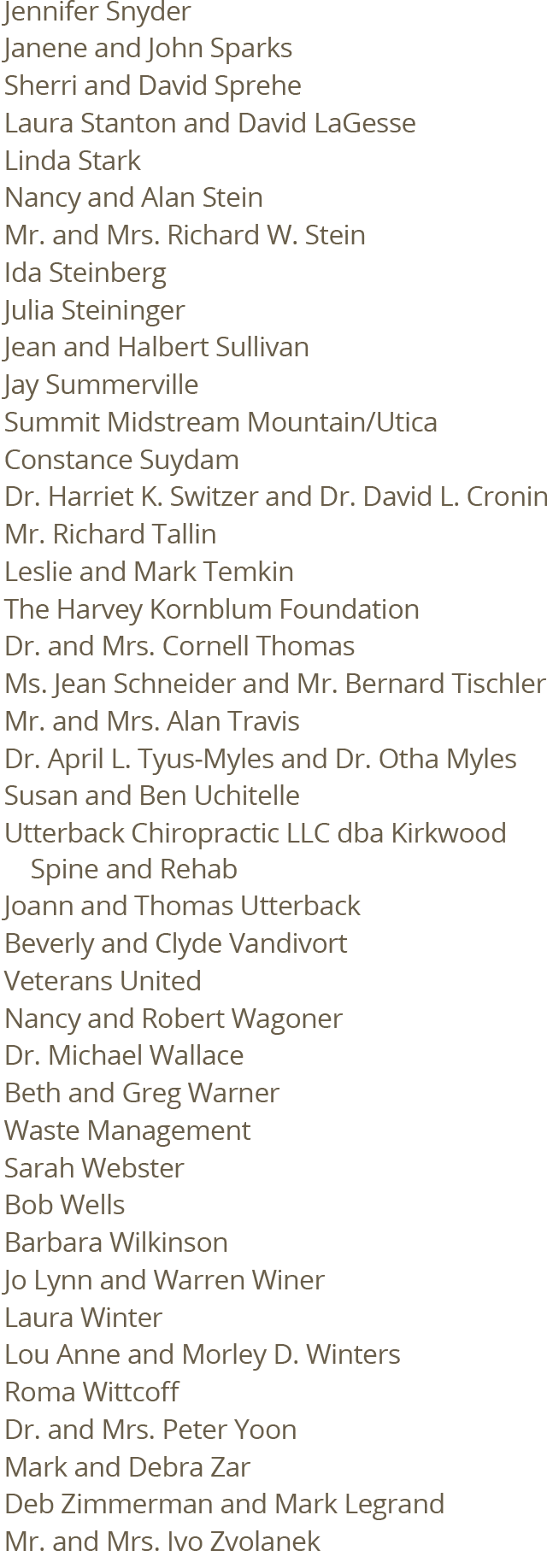
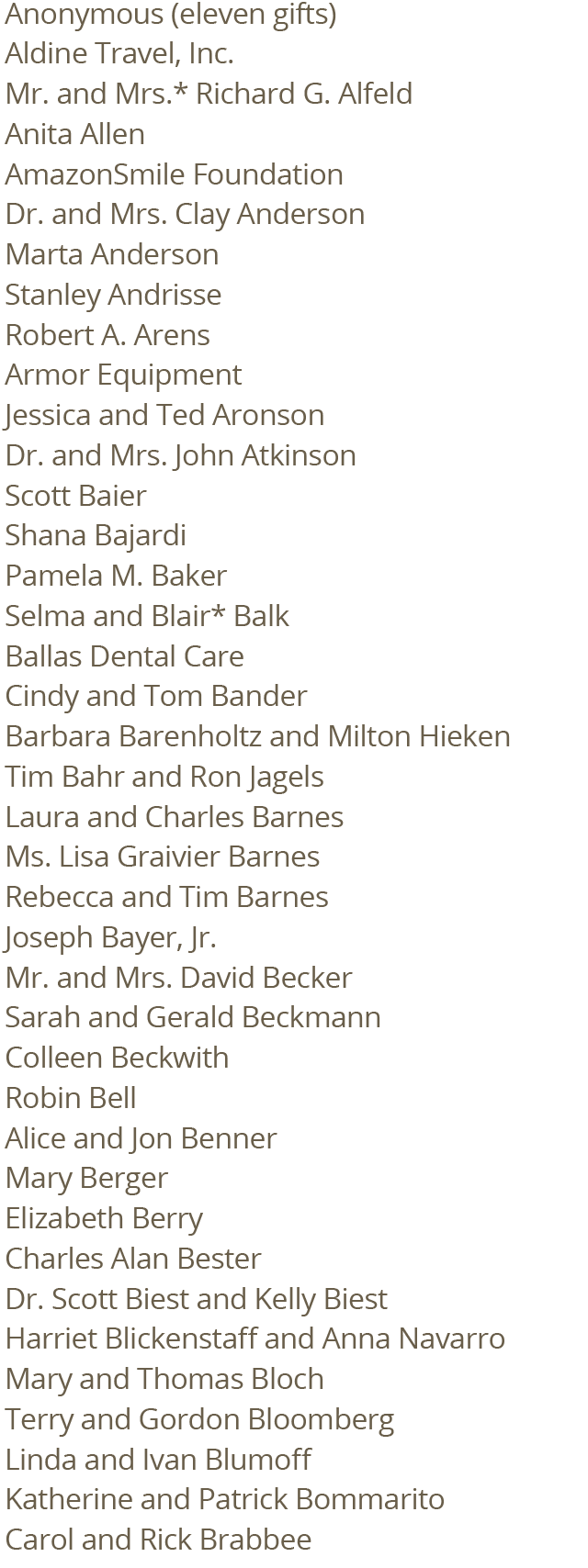
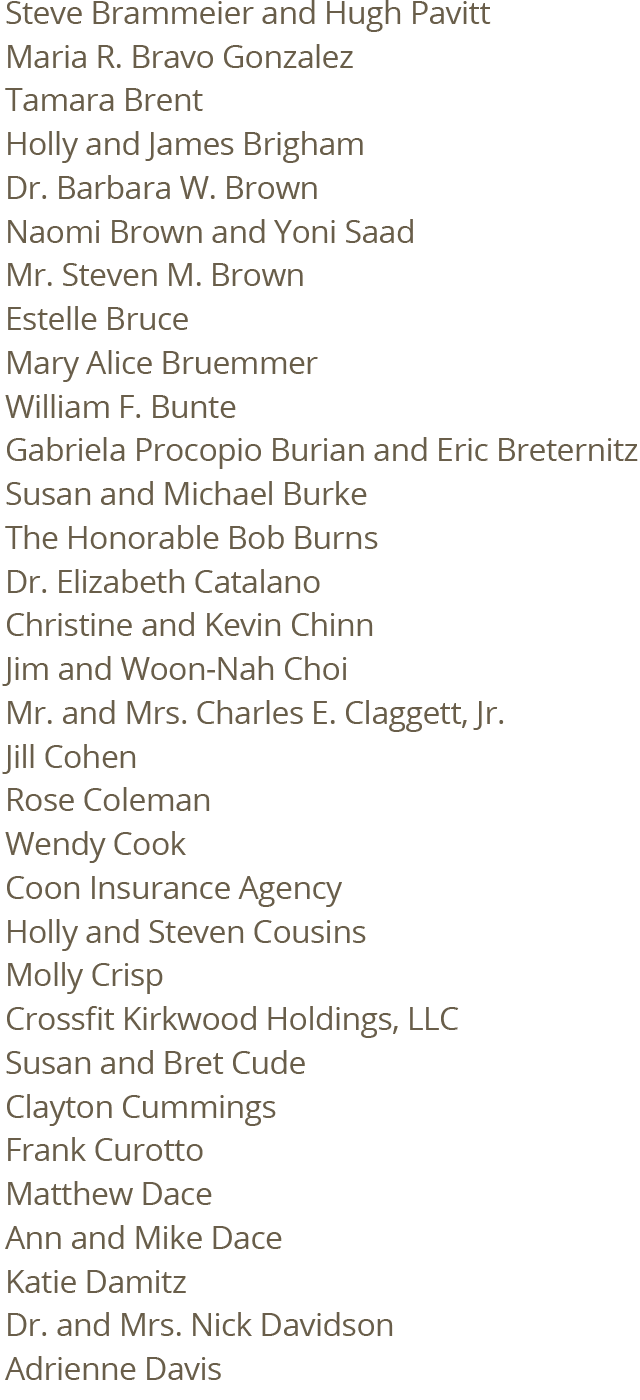
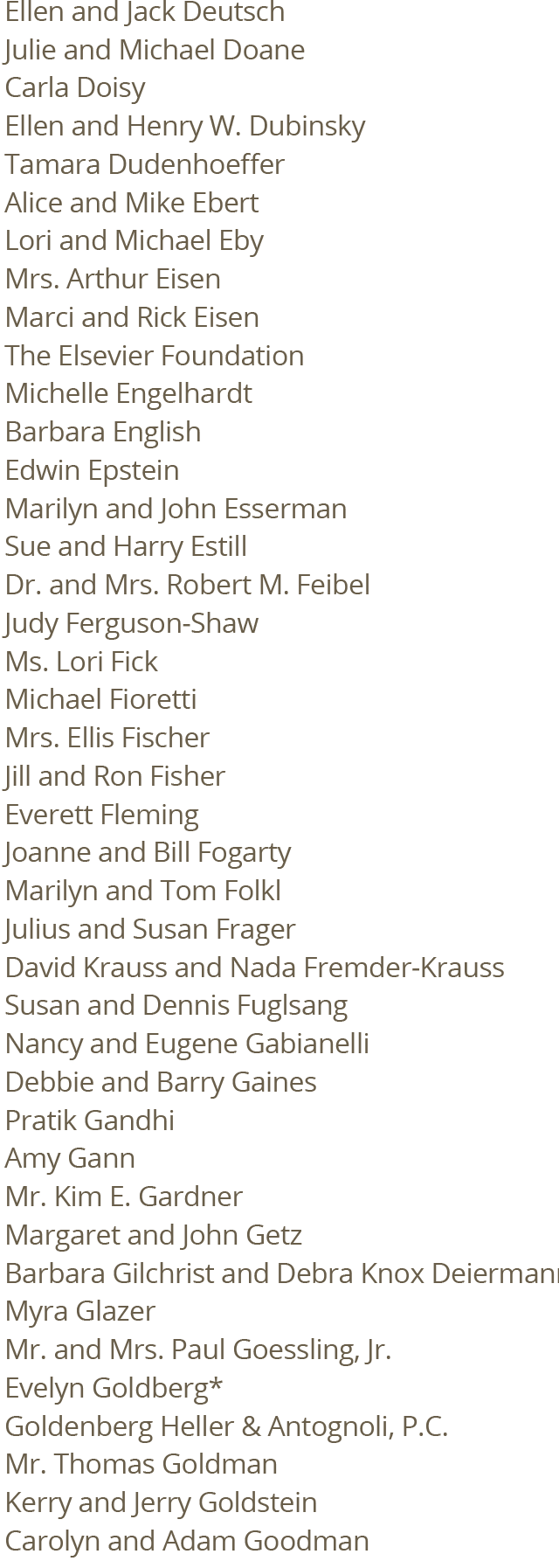
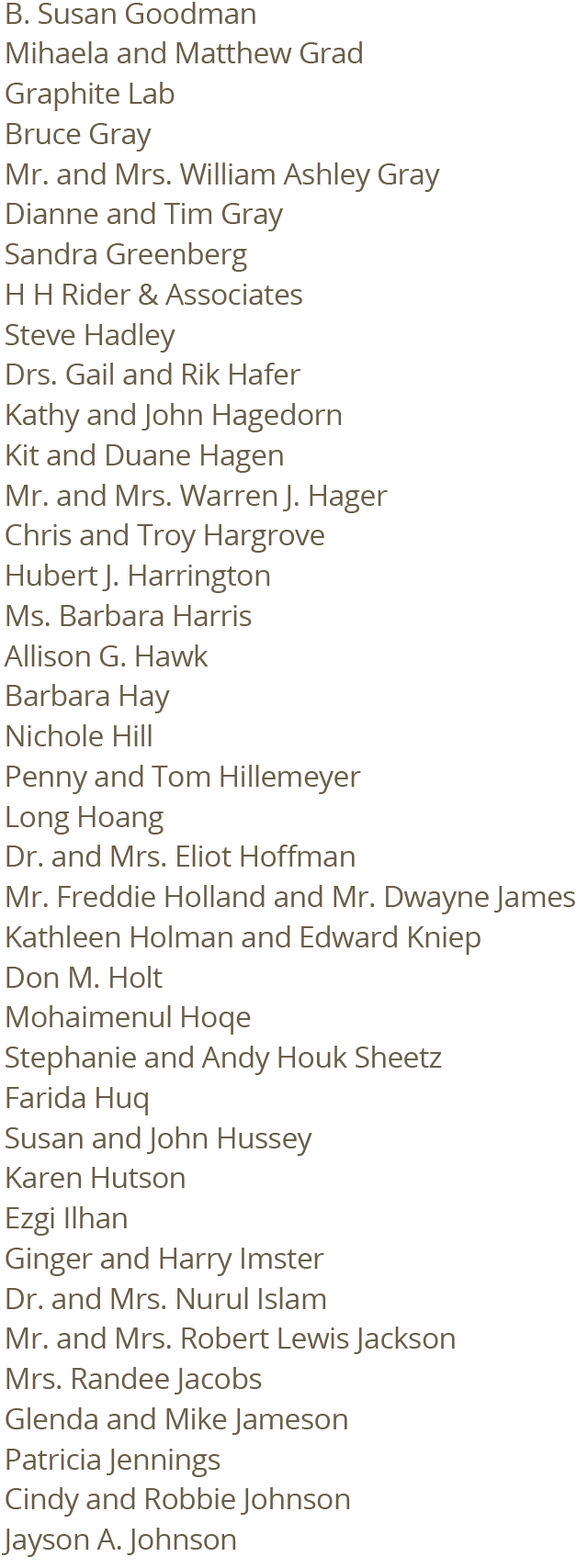
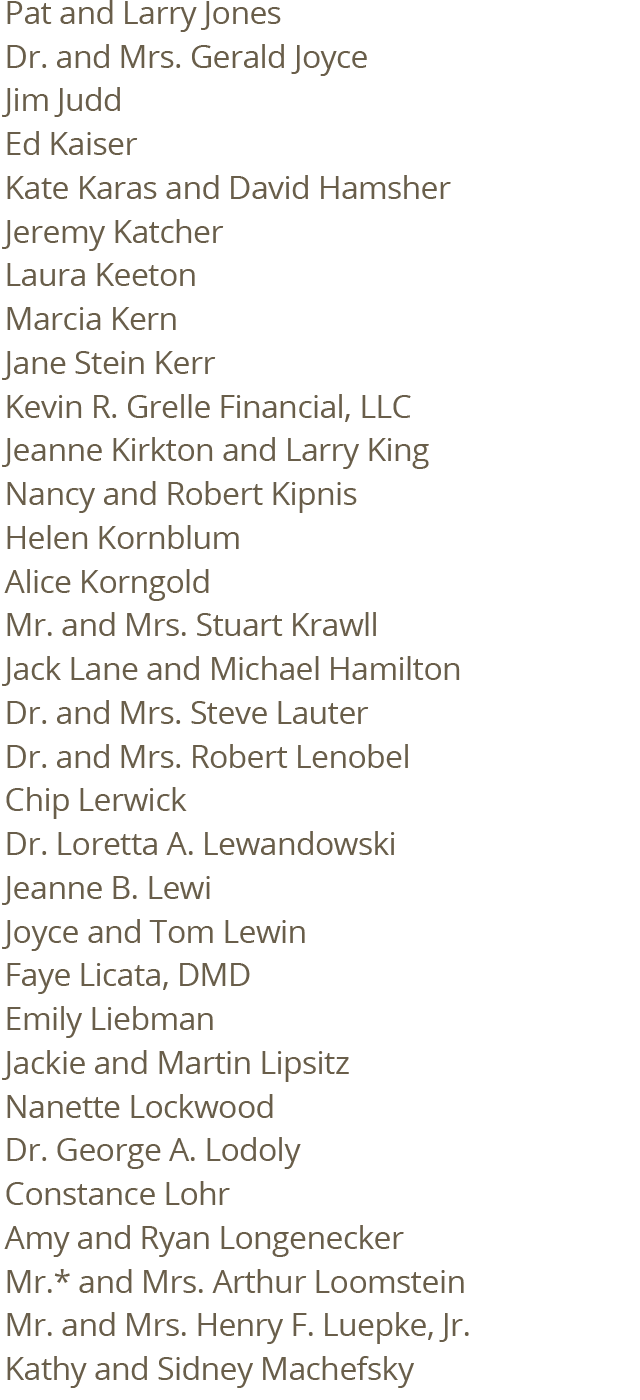
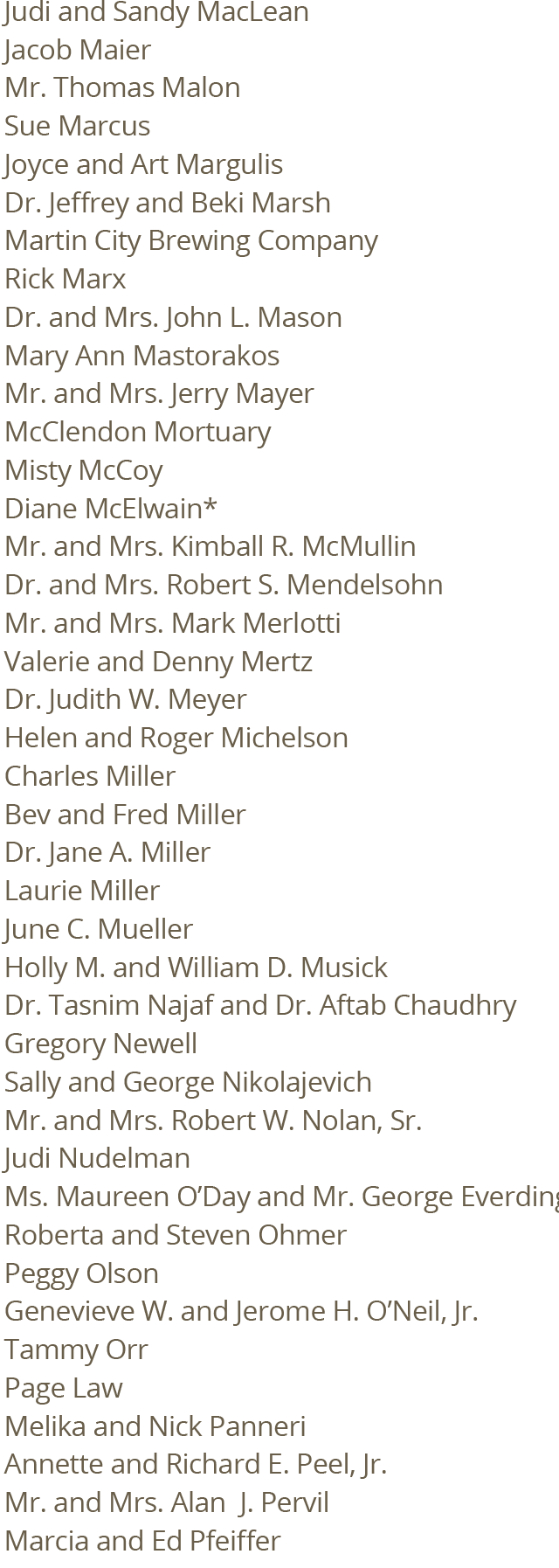
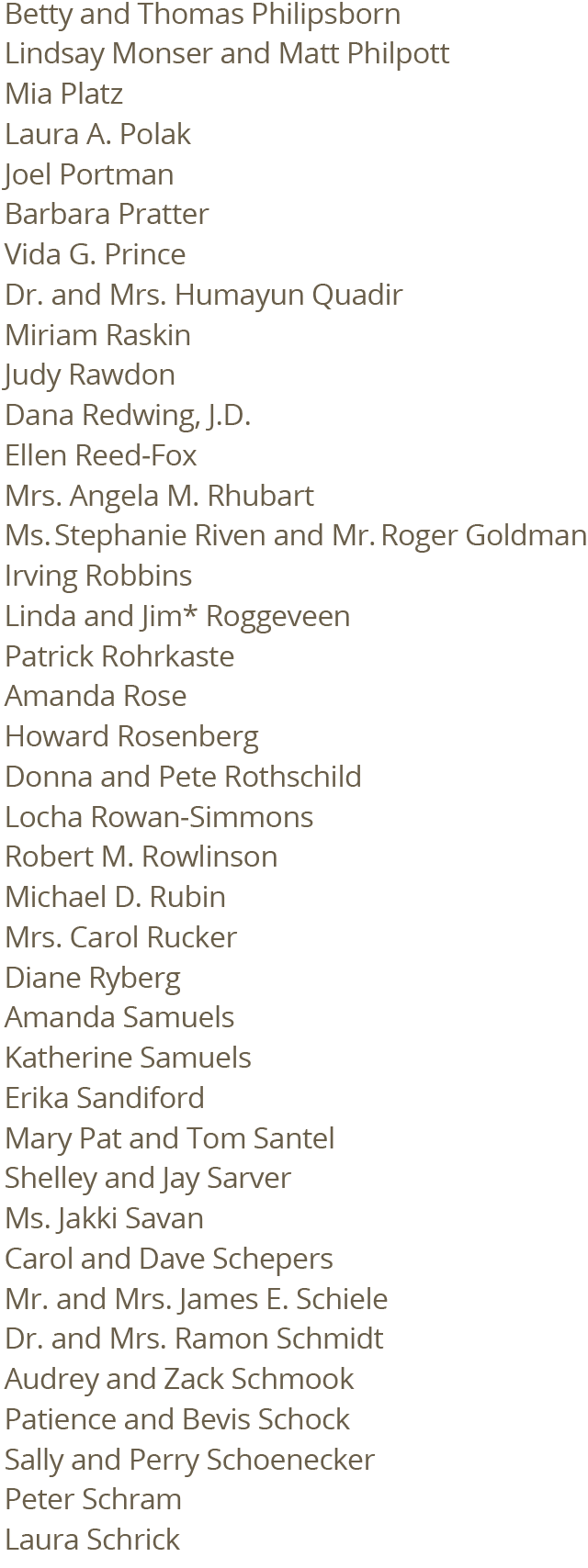
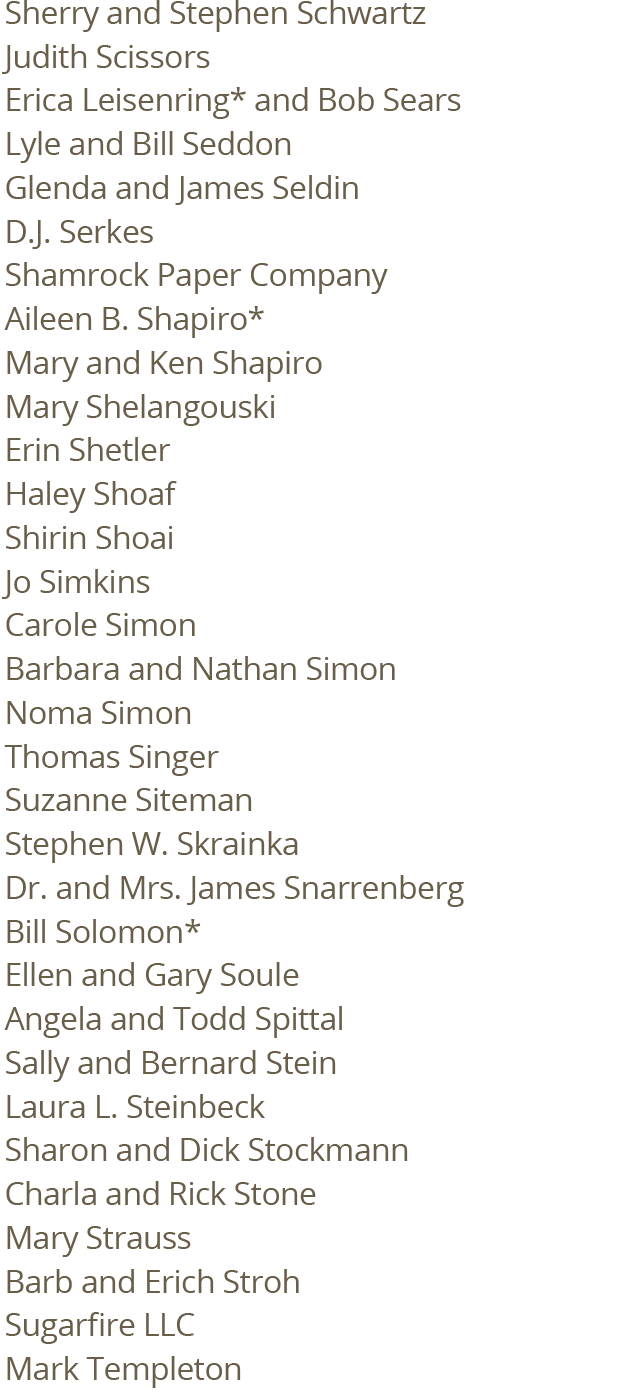
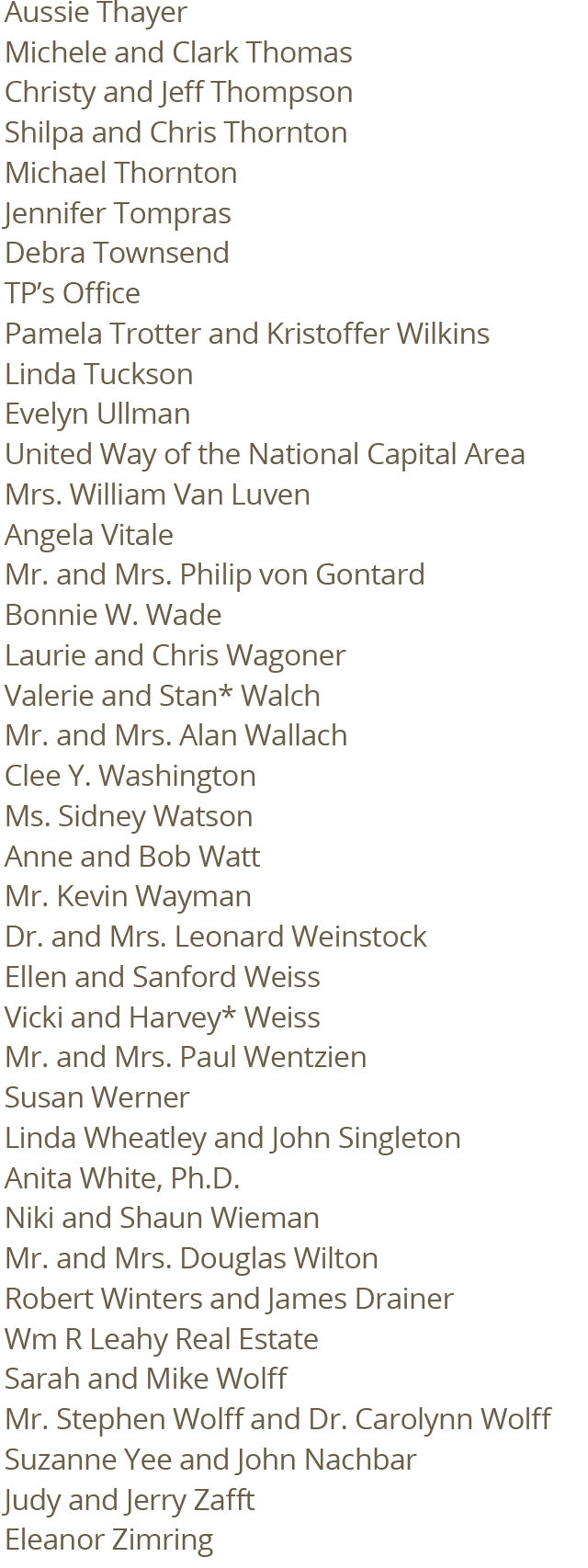
The following donors have signaled their belief in the power of education to change lives by making their first financial contributions during 2020, the Foundation’s centennial year, in the giving categories listed below.
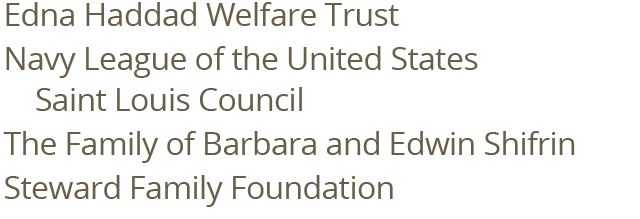






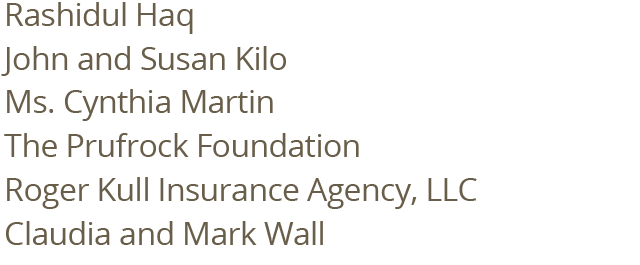



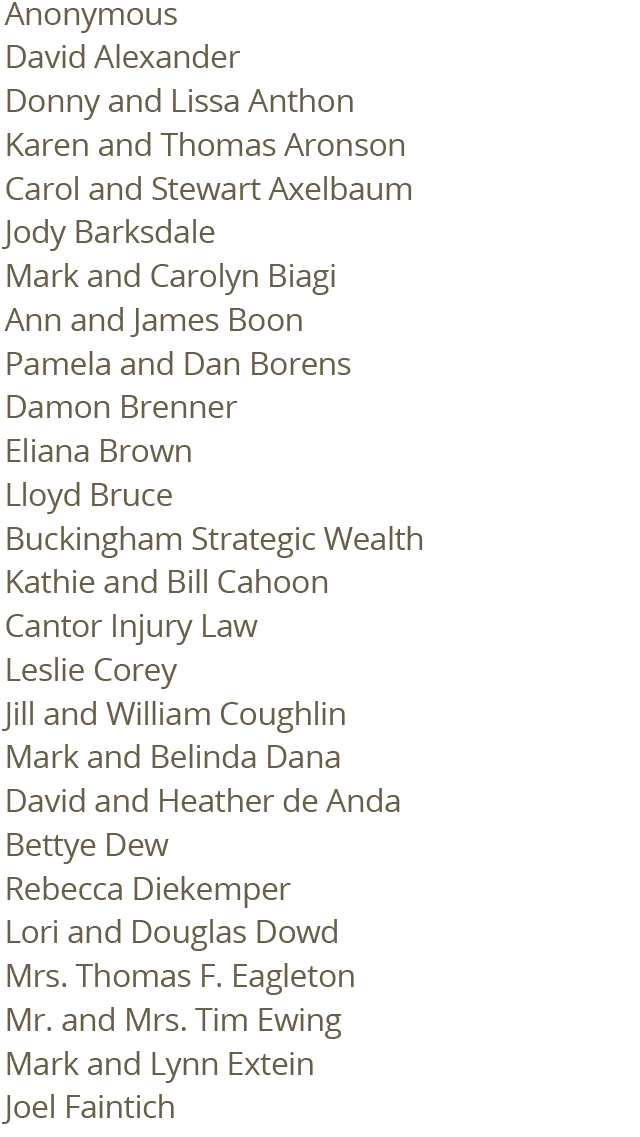
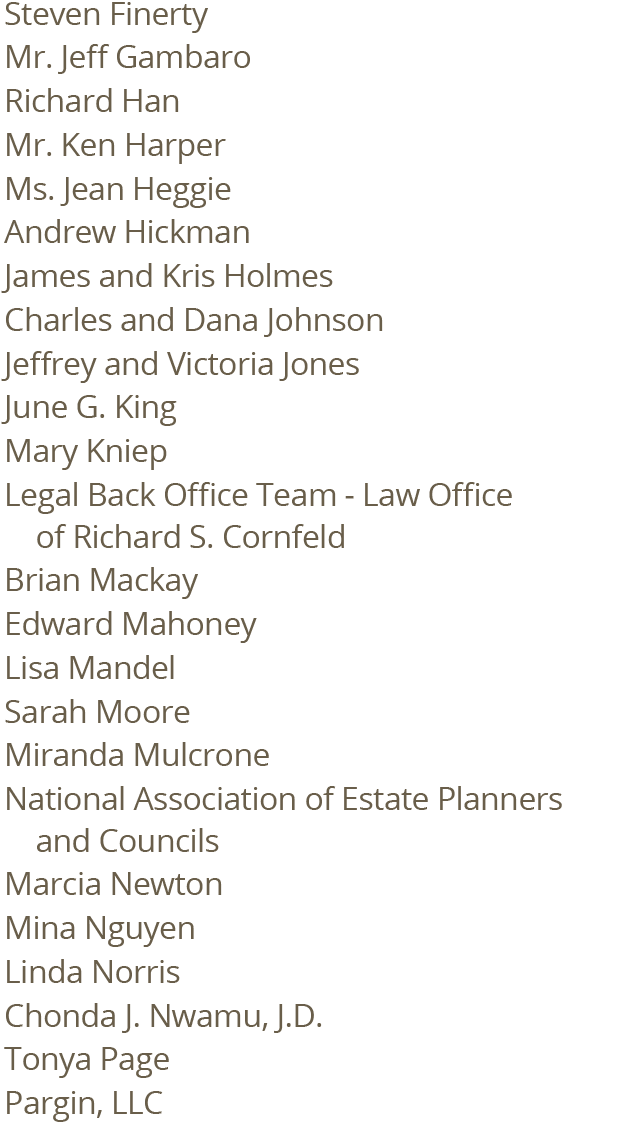
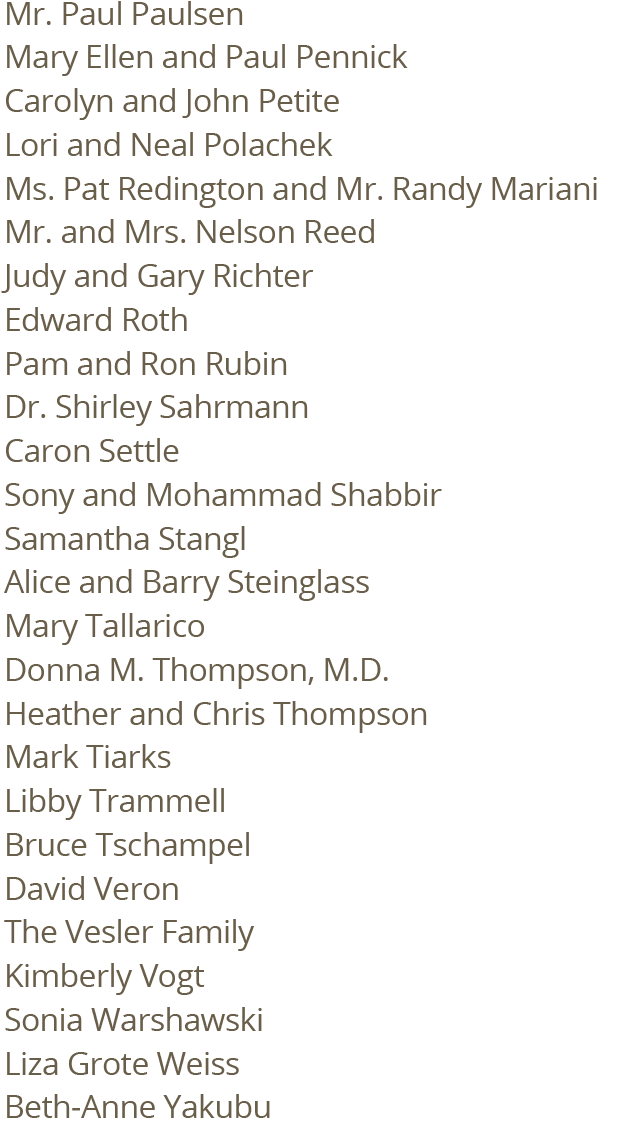
Designated Scholar Loans
Designated Scholar Loans (DSLs) are a special type of interest-free loan named for a specific donor or honoree and listed in perpetuity. The funds from DSLs are awarded by The Scholarship Foundation to students who have applied for interest-free loans. If a donor wishes, the Foundation matches a student to the DSL for the first five years of the loan and offers an option for communication between the donor and student. Donors may establish a DSL with a gift or pledge of $40,000 or more, payable in full or in five annual installments. For more information about DSLs or any other giving option, please contact External Relations Director Karin McElwain-West at 314-725-7990 or karin@sfstl.org.
If bolded, a named loan was established since January 1, 2020. If italicized, a named loan was fortified since January 1, 2020 with a gift which strengthened the loan’s power to support today’s students.


